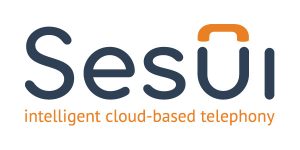 The use of personal mobile devices for work continues to be on the rise. Flexible and remote working options are now a major consideration for employees, while, for SMEs in particular, Bring Your Own Phone (BYOP) initiatives can help keep down costs, and provide the agility and flexibility to compete with the rigid structures of larger competitors.
The use of personal mobile devices for work continues to be on the rise. Flexible and remote working options are now a major consideration for employees, while, for SMEs in particular, Bring Your Own Phone (BYOP) initiatives can help keep down costs, and provide the agility and flexibility to compete with the rigid structures of larger competitors.
But are the benefits causing businesses to overlook the risks? Can business owners quantify just how many mobile devices are synced with their company data right now, and can they ensure work calls made on that device are compliant with company, customer and regulatory processes and requirements?
The evolving working landscape
Combined with a growing demand for employers to accommodate home-working, businesses are increasingly embracing the need to implement flexible working initiatives in order to attract and retain the best staff. In the same vein, managers are understanding the productivity gains and cost savings associated with greater employee satisfaction, and the increasing flexibility to make the most from existing resource. With a more dispersed workforce, however, comes an almost inevitable increase in the use for personal devices.
Even for companies that remain largely office-based, Bring Your Own Device is the preferred option for many SME employees; their products are more familiar, and can often be more advanced and responsive than company equipment. Employers in turn benefit from the convenience of reduced hardware spend and device maintenance.
But while the benefits are apparent, many businesses run the risk of becoming complacent. At best this could result in a question mark over their professionalism; at worst it could manifest as a serious security threat.
When implementing Bring Your Own Phone policies, business owners must consider how this will affect the following:
Confidence – for employees working remotely on their personal mobile phones, how can their manager then provide constructive advice to help them improve customer service, or ensure business information is stored securely? If not managed correctly, the use of personal devices could hinder progress of the business and employees alike, while leaving the former vulnerable to a potential data breach.
Compliance – business information that is not held on a secure device could have implications that are further reaching than the business itself. Data protection is of upmost importance and customers must be safe in the knowledge that their information isn’t going to fall into the wrong hands.
Consistency – a standardised, centrally managed experience is a key pillar to providing exceptional customer service, which all businesses want to be known for. Organisations must therefore consider what impact the use of personal devices could have on this, and how they counteract a potential silo effect to get the best from their employees and the best for their business.
Providing the answer
The advent of Cloud is a telephony game changer; it can be leveraged across the board, encompassing mobile devices through the simple download of an app, to provide contact centre functionality in a secure and controlled manner. It can provide the ability to add call recording for both inbound and outbound calls, and control caller ID information during outbound calling. Coupled with eliminating any costs that could be incurred by mobile use, and with usage integrated with real-time reporting, businesses can ensure confidence, compliance and consistency, regardless of their employees’ location.
Conclusion
There’s a fine balance to be had when it comes to the use of personal devices in the workplace, or indeed for remote working purposes; employees value the flexibility this can bring, while, managed correctly using the latest technologies, businesses also stand to reap the rewards of a more productive and efficient workforce.
Lee Bryant, Managing Director, Sesui